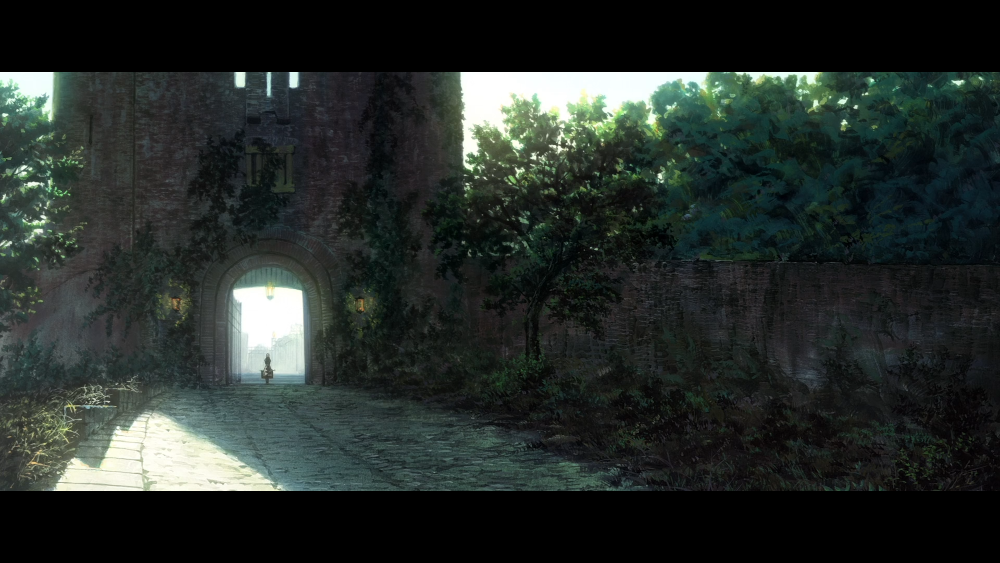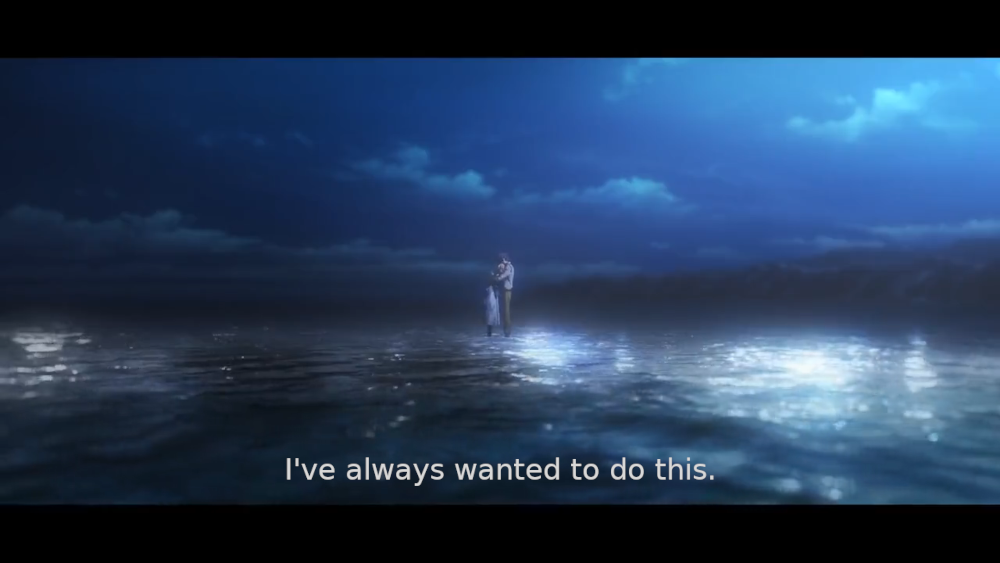POSTS
Pretty/Sentimental
Thoughts on Violet EvergardenI forgot a lot during the decade that I wasn’t watching anime. Naoki Urasawa’s Monster reminded me of the emotional heights that Japanese animation can reach. A few months later, 2021’s Belle reminded me that it doesn’t necessarily take some 24 hours of storytelling to get there. 2017’s Erased1 reminded me that not every series has such lofty goals, and it taught me that my interests have changed. These days, I’m less excited by sci-fi gimmicks and more interested in artistic range and emotional depth. A few oblique forum references made me think Violet Evergarden might fit the bill.
The series follows a kind of “monster of the week” format, where Violet meets, struggles with, and delivers for a new ghostwriting client in each episode. On the one hand, this structure is maladapted to developing an emotional connection with the clients, and it even distracts from the supporting cast. That’s most apparent in the finale of the television series. We’re clearly intended to derive some emotional payoff when the cast celebrates a holiday together, yet the emptiness of the moment only serves to remind that we never really explored these relationships in the first place.2
On the other hand, an episodic ghost-writing premise is a great vehicle for a troubled orphan’s coming-of-age. It’s downright delightful to watch Violet learn from her clients, and the series’ emotional sensitivity allows it to depict Violet as a traumatized child rather than a goofy fish-out-of-water. The mood frequently approaches saccharine, though, which is a little harder for this Western male and first-time josei-viewer to take.
Now, that might be an identifying characteristic rather than an unintentional trope; maybe saying the Violet Evergarden is “too sentimental” is like complaining that the robots in Gurren Lagann are “too big.” While I wonder to what extent the series trivializes PTSD3, it absolutely refuses to glorify violence. Where a million other cartoons would delight in reminding viewers of the protagonist’s “badass” training, Violet Evergarden only reluctantly implies the girl’s skill in combat.
Violet Evergarden enjoyed popular and critical success as a series of novels before Kyoto Animation adapted it into a collection of animated works (a 12-part miniseries, an OVA, and two feature-length films). That context primed me to expect strong story and dialogue, but it promised nothing about the visuals. The gorgeous scenery and imaginative costuming therefore came as particularly pleasant surprises.
 Image: Kyoto Animation
Image: Kyoto Animation
Despite a scarcity of action sequences, the series also finds plenty of opportunities for impressive animation. From hair movement and lighting dynamics to body language and particle effects, motion routinely adds a dimension to the experience that justifies the adaptation.
The same goes for the score. In a typical derivate work, one might expect the producers to check the box for “music” with a merely serviceable soundtrack. Here again, the adaptation goes above and beyond with some truly memorable pieces–The Voice in My Heart still gets me every time I hear it.
Overall, the original television series along with the OVA and Eternity and the Auto Memory Doll make for a consistently entertaining and often touching frame story–one that I could recommend without hesitation (particularly if folks watch in chronological order).
Unfortunately, we have to talk about Violet Evergarden: The Movie.
In attempting to (spoiler alert) fulfill the forgone relationship between Violet and Major Gilbert Bougainvillea, the movie struggles to downplay an awkward truth: this guy fell in love with a traumatized child. While the movie seems to believe audiences will accept Gilbert as a tragic hero (tragic for his upbringing, heroic for his treatment of Violet), viewers will find themselves questioning the more flimsy aspects of the premise. Was his wariness about exploiting Violet’s fighting talents really all that remarkable? How did he develop a romantic interest in a detached and brutal youth? Was it delusional to harbor unrequited (maybe unrequite-able) love for so many years? Isn’t this celebrating the worst parts of chivalry?
 Image: Kyoto Animation
Image: Kyoto Animation
This interrupted relationship worked as Violet’s driving force throughout the series because it’s a compelling obsession for a confused child. Its resumption isn’t just melodramatic or unnecessary; it’s kind of inappropriate. Add in another tragic ghostwriting client, a bit of lazy rumination on job displacement, and some irrelevant granddaughter bookends; and you’ve got yourself a feature-length mess.
Maybe you can hear me hyperventilating at this point. To get a grip, I remind myself that “The Movie” is only frustrating because the series is so well-executed. I can (and do) endorse the latter without the former. Violet deserves a little more closure than that cut affords her, but the deficiency is easily preferable to the alternative.
-
Well, the first episode, anyway. ↩︎
-
It’s a shame that the more substantial entries (an OVA titled “Surely, Someday, You Will Understand Love” and a film titled “Eternity and the Auto Memory Doll”) were published out-of-sequence. I imagine they would help mitigate this deficiency if viewed in chronological order. ↩︎
-
There’s no denying trauma’s impact on Violet’s emotional well-being and her ability to enjoy life, and she does at least nominally wrestle with guilt. Still, her experience did not compromise her ability to function in society, and her recovery didn’t require any sort of professional treatment. I’m fortunate enough to have no personal experience with PTSD, so I leave judgement about the validity of all this to others. ↩︎